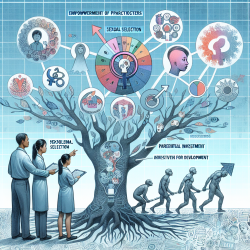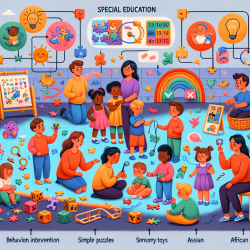As practitioners in the field of special education, we are always on the lookout for ways to improve our methods and provide better support for our students. A recent study titled Emotion and location cues bias conceptual retrieval in people with deficient semantic control offers valuable insights that can be applied to enhance online therapy services. The research suggests that incorporating emotional and spatial cues can significantly improve semantic retrieval, especially for individuals with semantic control deficits. Here, we’ll explore how these findings can be translated into practical strategies for online therapy.
Understanding the Research
The study conducted by Lanzoni et al. (2019) examined how emotional and visuo-spatial cues influence the retrieval of dominant and subordinate meanings of ambiguous words in individuals with semantic aphasia. The findings revealed that patients with semantic control deficits showed improved performance when relevant emotional or spatial cues were provided, and poorer performance when misleading cues were presented.
Applying the Findings to Online Therapy
Given the increasing reliance on online therapy platforms, understanding how to effectively use emotional and spatial cues can be a game-changer. Here are some strategies to consider:
- Incorporate Emotional Cues: Use facial expressions, tone of voice, and emotive language to reinforce the meaning of words and concepts during therapy sessions. For instance, when discussing positive events, ensure your facial expressions and tone convey happiness.
- Utilize Spatial Cues: Integrate visual backgrounds or context-related images that align with the concepts being taught. For example, if teaching about animals, use images of their natural habitats to provide a concrete visual context.
- Tailor Cues to Individual Needs: Recognize that different students may respond better to different types of cues. Some may benefit more from emotional cues, while others may find spatial cues more helpful. Tailor your approach based on individual preferences and responses.
Encouraging Further Research
While these strategies offer a starting point, further research and experimentation are crucial. Encourage your team to explore how different types of cues impact various aspects of learning and communication in your specific student population. Documenting and sharing these findings can contribute to a broader understanding and refinement of online therapy practices.
Conclusion
Incorporating emotional and spatial cues into online therapy can significantly enhance semantic retrieval and overall communication effectiveness for students with semantic control deficits. By understanding and applying these research findings, we can create more engaging and supportive therapy environments. Let’s continue to innovate and share our successes to build a more inclusive and effective approach to special education.
To read the original research paper, please follow this link: Emotion and location cues bias conceptual retrieval in people with deficient semantic control.










